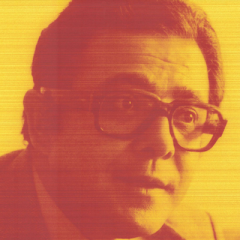As a political opponent of the Iranian government and a human rights defender, Kazem Radjavi fought for the prisoners of conscience. Regardless of the government, Radjavi chose to remain critical and supported political detainees. Unfortunately, his critical position cost him his life and he was assassinated in 1990. He researched “La dictature du prolétariat et le dépérissement de l’état de Marx à Lénine” for his PhD dissertation, which he published in 1975.
To ensure that his project to release political detainees succeeded, Radjavi founded the Swiss Advocacy Association for Iranian Political Prisoners. It received support from Amnesty International and the Swiss League for Human Rights. This movement allowed Radjavi to fight for his brother Massoud’s freedom. Through the media, Radjavi pressured the government. After several months, the Shah commuted Massoud’s death penalty because of his young age and for “humanitarian reasons”. When the government changed with the 1979 Islamic revolution, Massoud was liberated but his issues with authorities continued; he led the armed opposition group, the National Council of Resistance of Iran (NCRI).
Radjavi was impacted by the post-revolution government change. While teaching as a professor at the Geneva Graduate Institute, he was nominated as the first Ambassador to the United Nations headquarters in Geneva in 1979. Afterwards, the divergence he had with the new theocratic government pushed him to leave diplomatic affairs. He then became the Swiss representative of the NCRI led by his brother. By publishing “La révolution iranienne et les moudjahiddines" in 1983, he raised awareness about the Iranian context and kept the world updated on the thematic.
Radjavi was assassinated in 1990 by agents from Iran’s Ministry of Intelligence and Security (MOIS). The initial reason for this attack was unclear. Since then, his brother and son, respectively Saleh and Stéfane, have tried to find justice for him. Unfortunately, Massoud Radjavi’s disappearance in 2003 under uncertain circumstances is another experience the Radjavi family is going through.
Fifteen years after Kazem Radjavi’s death, the city of Geneva commemorated him by giving his name to a street.



